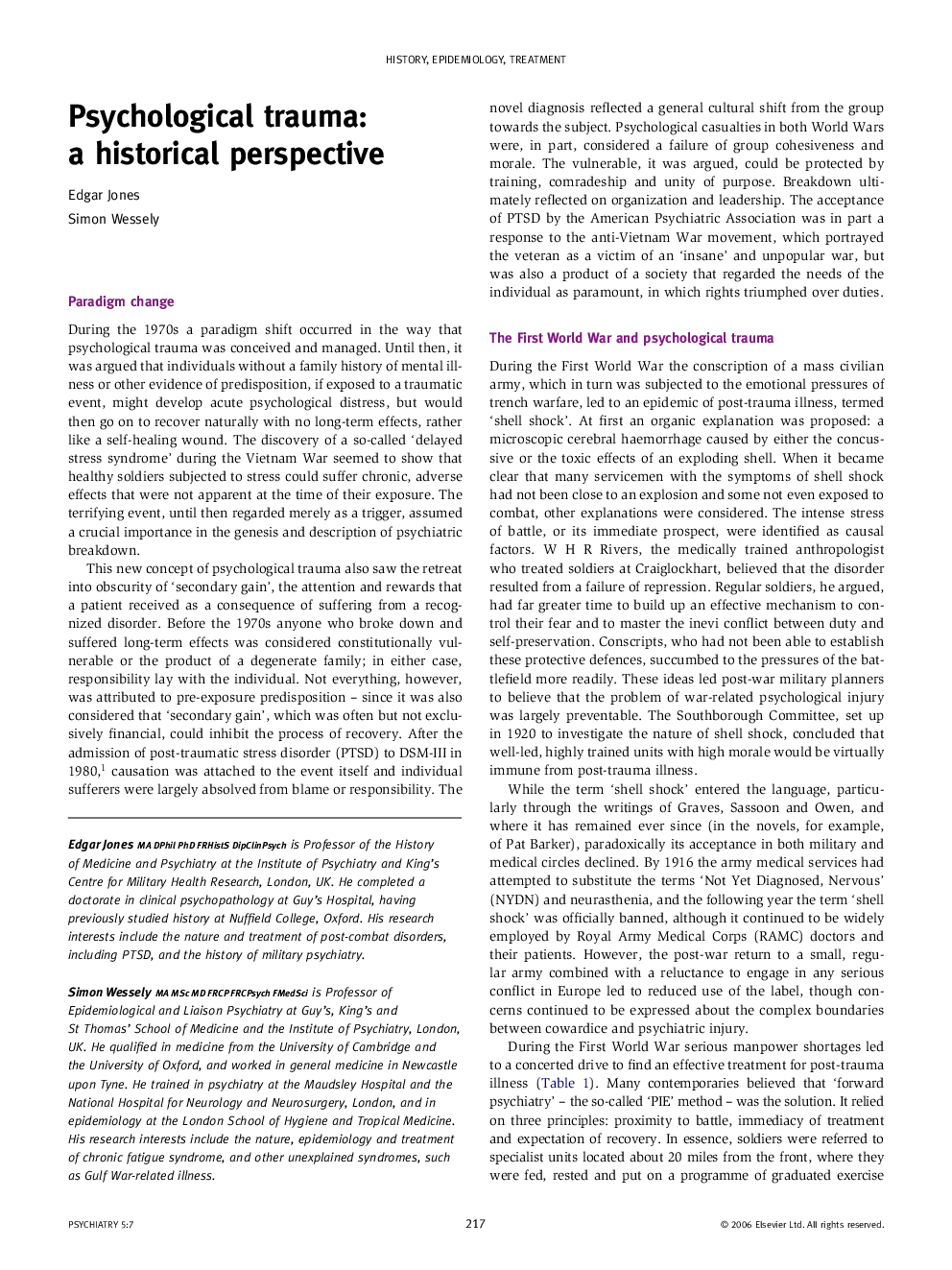| Article ID | Journal | Published Year | Pages | File Type |
|---|---|---|---|---|
| 4190323 | Psychiatry | 2006 | 4 Pages |
During the 1970s a paradigm shift occurred in the way that psychological trauma was conceived and managed. Until the Vietnam War, those who broke down following a stressful event were considered inherently vulnerable or subject to a neurosis laid down in childhood. During the Second World War it was recognized that all servicemen have a breaking point, though robust individuals were expected to recover quickly, with no lasting effects. Symptoms that endured were usually conceived as a consequence of secondary gain, rewards that the patient received beyond the relief of anxiety. The diagnosis of post-traumatic stress disorder (PTSD), validated in 1980, reflected the new belief that all individuals could suffer long-term effects as a result of a traumatic event. No longer were chronic psychological disorders limited to the vulnerable or those with an unconscious wish for financial compensation.
